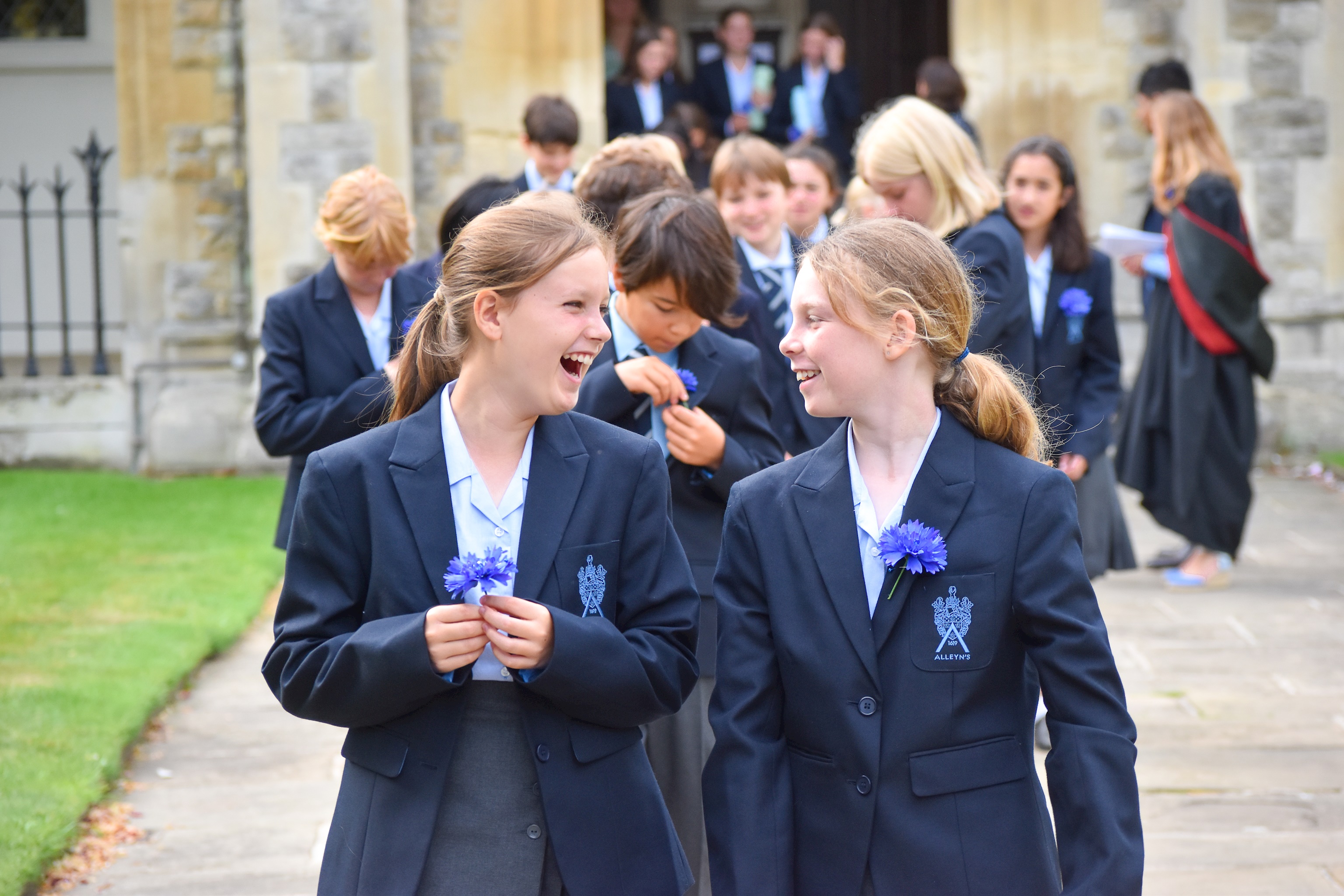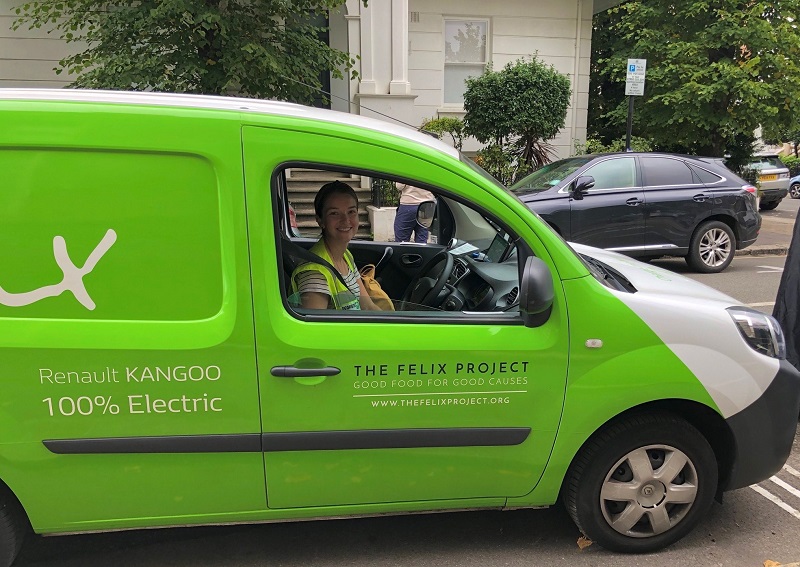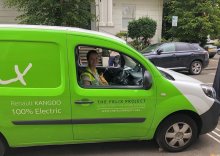Alumna Georgina Czernobay (Cribb’s 2004 - 11) is the Central London Co-ordinator at The Felix Project. We were delighted to interview her for Alumni News in the Edward Alleyn Club Autumn 2020 magazine:
The Felix Project is a London based charity which rescues surplus food from the food industry and re-distributes this food free of charge to charities and schools who can make good use of it. The idea of simultaneously combatting the issues of food waste and food poverty really caught my attention and I knew I had to be a part of it!
The Felix Project has a network of over 600 front line charities and primary schools which are supplied regularly with deliveries of good quality, fresh, surplus food. The charities we support varies from hostels and shelters supporting homeless people, to community kitchens, food banks and holiday clubs which support children over the school holidays. Many of these are small charities which operate on a financial knife-edge and rely on us to provide free food deliveries to help them better support some of the most vulnerable people within our communities. Unfortunately, there is a hunger problem in London and the impact of coronavirus has only intensified this problem. The scale of need and demand for services like ours is growing rapidly and will unlikely slow down as the full social and economic consequences of the pandemic are truly realised.
In the face of coronavirus, we were initially hit hard like many other organisations. However, thanks to our agile approach we managed to adapt our operating model and massively scale up our operations to provide an emergency response to the pandemic. Our operations have rapidly grown to over three times our usual food output and in the first six months of 2020, we distributed 3,100 metric tonnes of surplus food which is the equivalent of nearly 7.4 million meals (already surpassing the 6.4 million meals we re-distributed in 2019). It was amazing to see such incredible support throughout lockdown; volunteers showed up in their droves, closed restaurants opened up their kitchens to prepare meals especially for us to re-distribute, and supporters opened up their purses to provide financial backing to keep the operations running. This tremendous collaborative effort showed off London at its best and made me feel incredibly grateful to live and work in such an inspiring city.
The operation I manage at The Felix Project (central London operation) is completely green which is something I am really proud of. Not only are we diverting food waste from land fill, we use fully electric vans on our routes as well as operating walking and cycling routes whereby volunteers use a Felix courier bag to distribute food from A to B on foot or by bicycle (think Deliveroo!). We are primarily tackling end of day surplus from the food-to-go sector in central London. If we didn’t collect this food and make it available to people in the local area, the food would end up in black refuse bags you see lined up on the pavements. It is a really unique model and we are currently the only organisation tackling this urban problem at scale.
To run my operation successfully I rely on many cogs of the wheel coming together; whether that’s sourcing volunteers, charging electric vans, liaising with our partner suppliers and charities. It makes for a busy day but when everything comes together, I feel really proud that we’ve made a valuable contribution to the community we live in and are one step closer to eradicating food waste and food poverty in London.
If you’d like to get involved with The Felix Project in any capacity, please do get in touch!
You can read more Alumni News on page 20 of the Autumn 2020 EAC Magazine




.jpg)

.jpg)





















